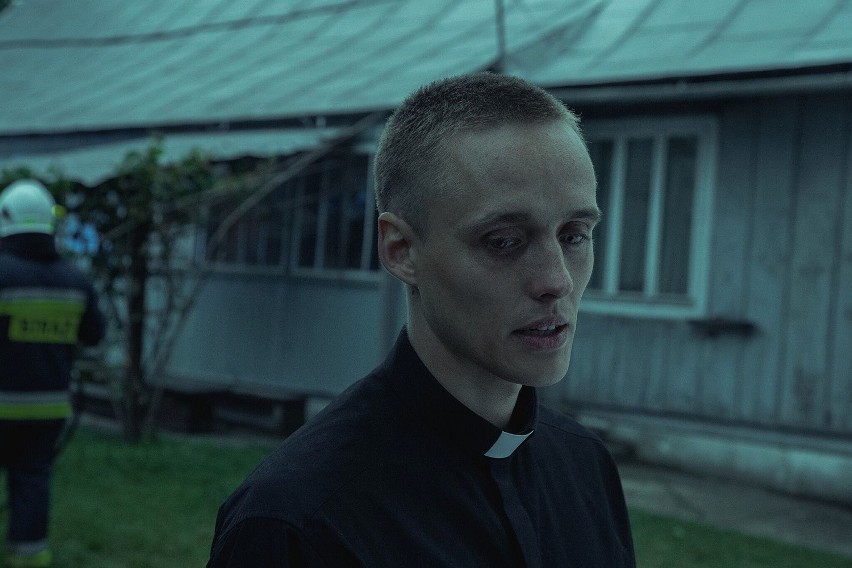Our Polish friends continue to wrestle productively with their national faith. Corpus Christi follows 2013's artful In the Name of... and last year's sledgehammer Kler in wondering how much protection and comfort traditional forms of Catholicism can provide against the rigours of the modern world. There's some crossover here with the agonised Presbyterianism of Paul Schrader's First Reformed - not least in the underlying insistence that our faith movies don't have to be preachy or pious. Rather than some upstanding dogooder, Jan Komasa's film hones in on Daniel (Bartosz Bielenia), a pop-eyed, crop-headed escapee from a Warsaw young offenders' institute who's somehow managed to hold onto his crucifix - a relic of an earlier stint in a seminary - amid regular, ritualised beatings. After an interlude of screwing and pill-popping that paints its own vivid picture of a young man being let off the institutional leash, he slaps on a borrowed dog collar and starts a new life as Father Tomasz in a small, devout rural parish still reeling from a recent tragedy. The film's quiet tension stems from the fact Daniel/Tomasz is not someone you or I would immediately trust with our secrets at the confessional; the question is whether he'll grow into the role that he's playing, or exploit the power it gives him over his credulous flock. It's some while before we learn what Daniel was in borstal for, which hardly reassures us any.
For a while, that low-level unease is all we have to go on. Komasa subscribes to that formal austerity that has been a feature of the clerical genre ever since Bresson made Diary of a Country Priest: diffuse or muted lighting, no score beyond the trance music our dubious hero uses to fill his downtime, the better to suggest a community caught up in its own silent prayers and thoughts. Yet Mateusz Pacewicz's spare, skilful writing, a fine ensemble cast and - especially - cinematographer Piotr Sobocinski Jr.'s searching location work eases us and our healthy scepticism/outright doubts into this self-contained world of conservative curtain-twitchers; from a very early stage, we're hooked. The miracle we witness there is that Father Tomasz's worldly, unconventional methods - his directness and honesty, his willingness to skip the usual liturgical rigmarole - initially effects some positive change: he's a scrapper who becomes a healer. Yet he trails a long past, and we're uncertain how much headway he can make before it snaps back to bite him in the behind. Komasa and Pacewicz have fashioned a curious, distinctive hybrid: Corpus Christi at once resembles some Doc Martin/Doc Hollywood-like parable about an outsider figure transformed by a community, and a Western playing out in Catholic Eastern Europe, replete with barn-burning and angry mobs. (It's also yet another movie to owe a certain narrative debt to XTC's "The Ballad of Peter Pumpkinhead" - though as that song was an atheist's rewrite of the Bible, perhaps all accounts have long since been settled.) That it not only holds together but actually surpasses the dramatic achievements of its predecessors is down to a very strong central performance from Bielenia, who has the reflective stillness of a Cillian Murphy, but also proves scarily convincing whenever Daniel/Tomasz cuts loose.
Corpus Christi is now playing in selected cinemas.

No comments:
Post a Comment